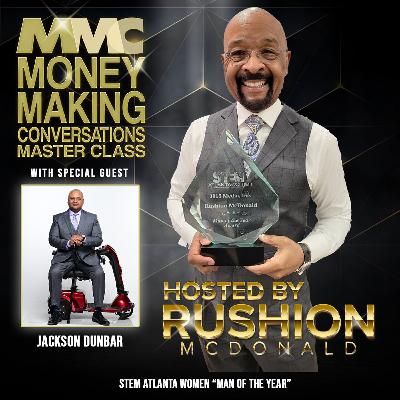Health Tips: She discusses social determinants of health; education, food deserts, and redlining which contribute to disparities.
Description
Two-time Emmy and three-time NAACP Image Award-winning television Executive Producer Rushion McDonald interviewed Dr. Schenta D. Randolph.
🎯 Purpose of the Interview
To spotlight Dr. Randolph’s work as a nurse scientist, her leadership of the HEET Lab, and her efforts to address health inequities—especially HIV prevention—in Black communities in the U.S. South. The interview also aims to educate listeners on the broader scope of nursing, the importance of representation, and systemic challenges in healthcare.
🧠 Key Takeaways 1. Dr. Randolph’s Background
- HBCU graduate from North Carolina A&T.
- Associate Professor at Duke University School of Nursing.
- Founding Director of the HEET Lab (Health Equity through Engagement, Advocacy, and Trust).
2. The Role of Nurse Scientists
- Nurse scientists conduct research to develop evidence-based interventions.
- Less than 1% of nurse scientists are Black.
- Nursing extends beyond bedside care into entrepreneurship, behavioral science, and public health.
3. HEET Lab Mission
- Focuses on HIV prevention among Black women and young Black men.
- Engages communities through partnerships with beauty salons, barbershops, and nonprofits.
- Funded by NIH and other foundations, with a $4.4 million grant for HIV prevention research.
4. Health Inequities in the South
- Higher HIV rates in the Southern U.S. due to systemic racism, lack of access to care, and population density.
- Social determinants of health (e.g., education, food deserts, redlining) contribute to disparities.
5. Systemic Racism & Denial in Healthcare
- Systemic racism creates barriers in healthcare access and delivery.
- Denial within the Black community about health issues (e.g., HIV, obesity, diabetes) is often rooted in distrust of the healthcare system.
6. The Role of the Church & Messaging
- Churches can be powerful platforms for health education but often stigmatize HIV.
- Messaging around HIV prevention (e.g., PrEP) often excludes Black women, leading to low adoption.
7. Mentorship & Representation
- Dr. Randolph co-founded Black PhD Nurse Scientists to mentor future scholars.
- Conducts HBCU tours to expose nursing students to research careers.
- Only 3 of 33 HBCU nursing schools offer PhD programs—highlighting a gap in academic pathways.
💬 Notable Quotes
- “Nursing is so much more than the bedside.”
- “Less than 1% of nurse scientists are Black.”
- “HEET stands for Health Equity through Engagement, Advocacy, and Trust.”
- “Representation matters. I became a nurse because I saw a Black woman who looked like me.”
- “We are truly our brother and our sister’s keeper.”
- “We have to advance our own health and be opinion leaders.”
- “This means more to me than my New England Journal of Medicine article.”
#SHMS #STRAW #BEST
See omnystudio.com/listener for privacy information.










